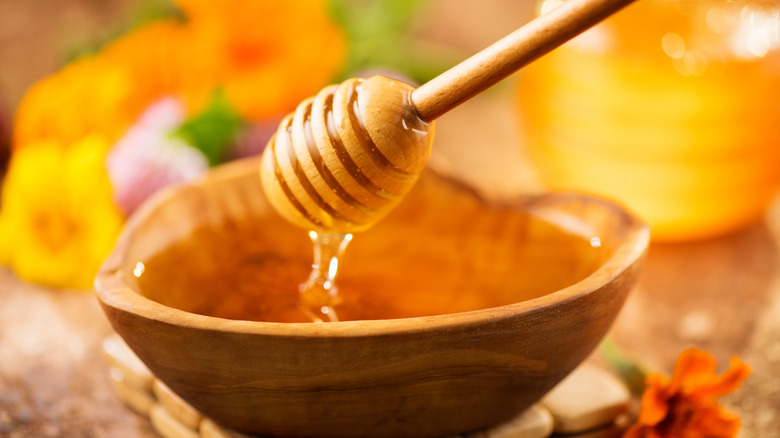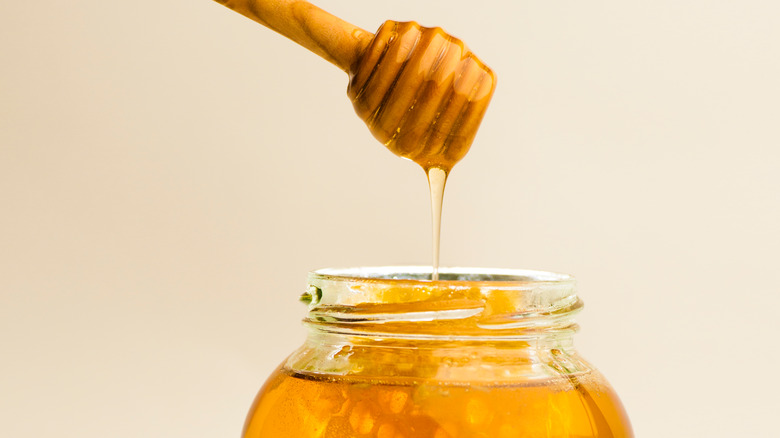Why A Honey Dipper Actually Is Useful
The humble honey dipper isn't one of those useless kitchen tools that lay idle in a cluttered cabinet drawer. You may assume that its adorable honeycomb shape is purely meant for an aesthetic honey collecting experience, but the truth is that this unique shape is exactly what renders the dipper so advantageous.
Sure, you could use a spoon to scoop out honey from its jar; however, this tends to produce a terribly sticky outcome. Instead, a dipper allows for better control as honey is able to be trapped in its grooves. When held horizontally and continuously rotated, these channels can even help honey to stay put until you're ready to drizzle it into tea or over top of pastries and icy treats. Speaking of which, dippers also allow for a more even and consistent drizzle of honey when compared to spoons.
Naturally, depending on what type of honey you buy, investing in a honey dipper may not always be worthwhile. For instance, if you remain loyal to the varieties that are packaged in convenient squeeze bottles, then dippers aren't necessary. But, if you tend to buy jarred honey from the market or a local producer, then dippers are definitely a must-have tool — the question is, what should you keep an eye on when picking out the perfect honey dipper?
How to choose the right honey dipper
There are some non-negotiables you should keep in mind, such as seeking out a honey dipper with adequately indented groves. It should also have a handle that's easy to grip, in addition to one that's also long enough to accommodate the jars of honey you typically purchase.
As far as materials, remember that no honey dipper is without faults. A glass or ceramic dipper may be gorgeous, but they can both be expensive and easily broken. In contrast, silicone or stainless-steel dippers can be durable yet can be susceptible to collecting dust or even corroding if stored for long periods of time, respectively. Conversely, wooden dippers tend to be a popular option because they won't chip fine china, however, the material can be tricky to maintain.
That said, in order to preserve the lifespan of honey dippers, they should always be cleaned with water and a delicate soap before being left to dry completely, prior to plunging into honey. Likewise, dippers should only ever come into contact with honey so as no to contaminate jars and compromise its integrity. Following these tips, honey dippers can endure a fair bit of dunking into honey but also salted caramel sauce or melted dark chocolate.

